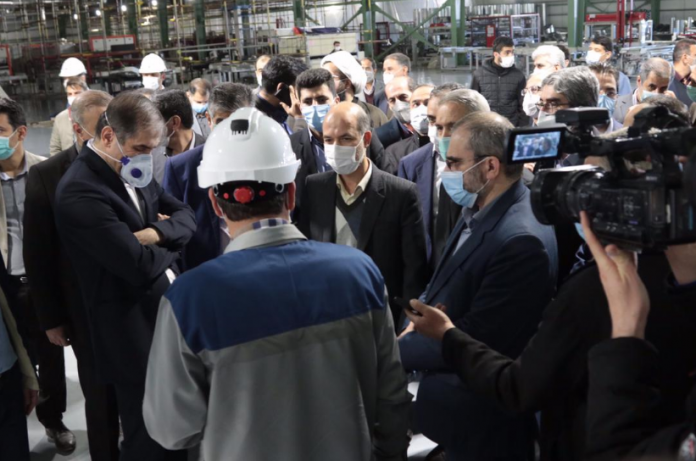Last week saw the opening of a 150MW silicon cell production line close to the city of Khomeini in western Iran. An announcement from the government’s Renewable Energy and Energy Efficiency Organization (SATBA) states that the factory was inaugurated in a ceremony attended by Iran’s Minister of Energy Ali Akbar Mehrabian, and other officials.
Mehrabian stated that with this factory and cooperation from others in the renewable energy sector, Iran would be able to set higher targets for renewable energy in its development plans. “Today, in response to questions related to the effects of fossil energy use, including water and fuel consumption, pollution,… it can be noted that the development of renewable energy is the answer to all these questions,” the minister said at the event.

Iranian Minister of Energy Ali Akbar Mehrabian speaks at the opening of Iran’s first solar cell factory on Dec. 23.
Image: SATBA
The factory is operated by Tehran-headquartered company Mana Energy Pak. The company’s website states that it has additionally purchased a factory able to produce 1.2GW of multi- and monocrystalline wafers per year, without mentioning the location of this factory. It also states that it has operated a 250MW production line for PV modules at the site near Khomeini since early 2020. According to SATBA, further phases already under construction will increase the factory’s PV module capacity to 1.5GW by the end of 2023.
Middle east manufacturing
The factory will be the first in Iran or the wider Middle East region to produce silicon solar cells. Though several countries in the region have made big steps in developing renewable energy projects, and there has been some appetite for local manufacturing, this has so far not grown beyond a few module assembly facilities.
Iran generates the majority of its energy from oil and gas and has not met a target of 5% renewables by the end of 2021. In November, however, SATBA issued a call for proposals for up to 10 GW of new renewables generation capacity to be built over the next four years. In early December, the organization reported that it had received more than 80 GW worth of proposals.






